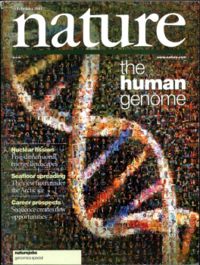Naturalistic experiment with comments
 The most respected journal of science and medicine - British Nature - on Thursday announced the completion of an experiment that has been conducted on its website since June of this year.
The most respected journal of science and medicine - British Nature - on Thursday announced the completion of an experiment that has been conducted on its website since June of this year.The editors, who considered that it was time to democratize the process of reviewing publications, decided to give authors the opportunity to ask them to post their work on a site where ordinary scientists and everyone interested could comment on them. Such a scheme in scientific circles is called peer-review. Previously, each article before being checked on the pages of the weekly magazine was tested and evaluated by a regular commission of scientists. Obeying the trends of the time, Nature allowed the authors of the works to demand to post their works on the magazine's website, where visitors could familiarize themselves with them and express their opinion in the comments. When it came to the decision to accept or reject the text for publication, the jury weighed both the opinions of experts and the average feedback from the audience.
But after four months, it became clear that this practice did not bring the desired results. Most online commentators limited themselves to reviewing the “good article” type and squeezing something useful out of them was problematic even with a good attendance for such a project - about 5,600 views per week. During the experiment, only 125 articles were reviewed on the Web (only 5% of 1,369 papers submitted for consideration), of which 33 of them did not receive any comments at all, and the remaining 92 were comments of a purely technical nature, none of which influenced the decision on publication.
But, despite the failure, the editors plan to repeat such an experience after analyzing the errors and communicating to the widest audience the usefulness of this review method. Indeed, now most scientists simply do not want to give their work to the public, fearing rival plagiarists.
The peer-review scheme uses the scientific journal PLoS One , which began its work this week and has already collected quite a few articles on its website that are available in the public domain. Perhaps his experience will help Nature to introduce advanced trends in its work.
